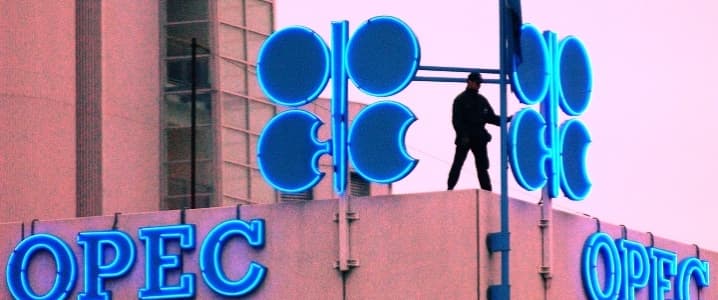After months of talk and speculation regarding OPEC’s production cuts, the moment of truth is almost upon us—the cartel and its allies are meeting in Vienna this week to decide the future of their pact.
An announcement of some sort is expected on November 30, but analysts and the oil market aren’t as convinced as they were two months ago that the statement will be about a nine-month extension through the end of 2018.
Yet, extending until the end of next year is still considered to be the base scenario, and the oil market has largely priced in such decision. So if OPEC falls short of this base expectation, oil prices could take a hit. On the other hand, rolling over the cuts until end-2018 could over-tighten the market and boost prices more, giving U.S. shale all the more reason to raise production.
OPEC has little room to maneuver between not disappointing the market and not overachieving in its “whatever it takes” measures to stabilize oil prices. The cartel also has to choose between higher oil prices—or at least not sending oil prices plunging—and losing additional market share to U.S. shale in the short term. Although various estimates differ widely as to how many additional barrels of oil shale drillers can bring to market, there is no doubt now that the U.S. is a force to be reckoned with, and its production will continue to rise next year.
“The U.S. becoming the biggest producer of oil in the world is a dramatic change,” Paolo Scaroni, former CEO at Italy’s oil major Eni and now vice-chairman of NM Rothschild & Sons, told Bloomberg, adding that OPEC and Russia’s deal to cut production was absolutely the right decision and Russia’s support was crucial.
Related: IEA Boss Sees Oil Markets Tighten In 2018
Now Russia’s support doesn’t look as firm as when the deal was first forged last year. There has been talk that Russia is reluctant to lend its support to a nine-month extension—it’s also been rumored that it is not as eager to deliver such an announcement as early as Thursday. Moscow says that in general, it supports an extension, and is reportedly now on board with an announcement to be made on November 30.
According to Saxo Bank’s Head of Commodity Strategy, Ole Hansen, OPEC and Russia are widely expected to announce a six- to nine-month extension on Thursday.
“The combination of a near-record fund long in oil which needs to be fed bullish news in order to be maintained and signs of a pick-up in U.S. production have, however, left OPEC with a very delicate task of delivering the result without triggering a price correction. If they tighten the market too much, thereby supporting additional price gains, they risk slowing demand while providing further support for the U.S. shale industry,” Hansen says.
Even at the risk of boosting U.S. shale, OPEC needs to issue a strong message of commitment on Thursday, the heads of some of the biggest oil trading firms told the Financial Times.
“If prices rise too high they can always revisit it, but the start of next year doesn’t look overly bullish,” said Marco Dunand, chief executive of Mercuria. Related: The Oil Information Cartel Is (Finally) Broken
“Balances already look weaker than 2017 even with flat OPEC production,” Giovanni Serio, global head of research at Vitol, told FT. “The question going forward is do they want oil to stay above $60?”.
According to Saxo Bank’s Hansen, the way OPEC handles “the delicate task of sending a robust message of unity and prolonged restraint will determine whether funds will continue to support the idea of higher prices.”
“Having bid the market up for several months in the belief that production cuts would be extended, the short-term risk to oil looks skewed to the downside unless an unexpected positive surprise can be delivered,” Hansen said.
It looks like OPEC doesn’t have a win-win move in the dilemmas it faces between 1) meeting and/or exceeding market expectations and 2) preventing another U.S. shale resurgence. The cartel either loses market stability and risks a sell-off in case of an underwhelming message on Thursday, or it drops further market share to non-OPEC rivals and sees how resilient U.S. shale is.
By Tsvetana Paraskova for Oilprice.com
More Top Reads From Oilprice.com:
- Meet The World’s Most Powerful Bitcoin Backers
- Tesla Owners Are Stealing Power To Mine Bitcoin
- U.S. Oil Has One Fatal Weakness


















